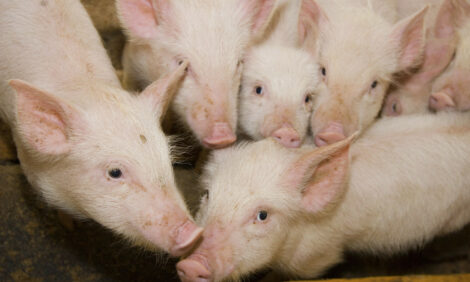



FSIS Listeria Report Says Progress Made Since Interim Final Rule
WASHINGTON, DC - The interim final rule on Listeria, proposed by the Food Safety Inspection Service (FSIS) in October 2003, has had a positive impact during its short implementation , a report concluded earlier this month, reported Food Chemical News.
The report was written by a 28-member FSIS team tasked with checking up on the effectiveness of the interim regulation.The team was divided into seven smaller groups, each of which tackled a different aspect of the rule.
According to Food Chemical News, FSIS extended the comment period for the interim final rule to Jan. 31 so that it would coincide with the close of the comment period for the report. FSIS spokesman Steven Cohen said that the report will “add to the body of information to which the comments [for the interim final rule] can be based.“
The agency surveyed 1,490 inspectors-in-charge who cover more than 2,900 plants that produce ready-to-eat (RTE) meat and poultry products, and found that more than 87 percent of the establishments had made at least one change to their processes after the interim final rule went into effect. About 59 percent of the plants started sampling for Listeria or Listeria-like organisms on direct food contact surfaces, and 27 percent of the plants began using an anti-microbial agent or other control process in one or more of the RTE products they produced. The survey also indicated that more than 17 percent of the plants started using a post-lethality treatment in their RTE process.
The report’s authors suggested that FSIS recognize that very small establishments face special challenges when trying to comply with new requirements. For instance, some plants don’t have Internet access. The report said FSIS should consider holding additional workshops for small and very small plants in advance of the final rule, and simplify the compliance guidelines so that they are more easily understood.
While the real analyses of the report and interim final rule will take place during the written comment period, a few stakeholders offered preliminary reaction to the report.
Skip Seward, vice president of regulatory affairs for the American Meat Institute, said that the group is optimistic “that as retailers utilize slicing equipment that has been redesigned for enhanced cleanability, this will contribute to further reductions in L. monocytogenes.“
Jenny Scott, senior director of food safety programs at the National Food Processors Association, said that she had not yet read the report but that many of the association’s members had developed control procedures for Listeria before the interim regulation was even out. But Scott said that the “biggest positive“ about the interim rule was that it provided an incentive for industry to look for Listeria species without being penalized for finding it. The rule encouraged manufacturers to look, find and get rid of it, she said, thus reducing the chances that products will be contaminated.
Source: National Pork Producers Council (NPPC) - 14th December 2004








